France stands before the "red line"
Consider what’s happening in France. Long lines of tractors blocked highways near Paris and across the country on Monday, as angry farmers sought to pressure the government to cut red tape and rigid green regulations, boost their incomes and help them compete with cheap imports.
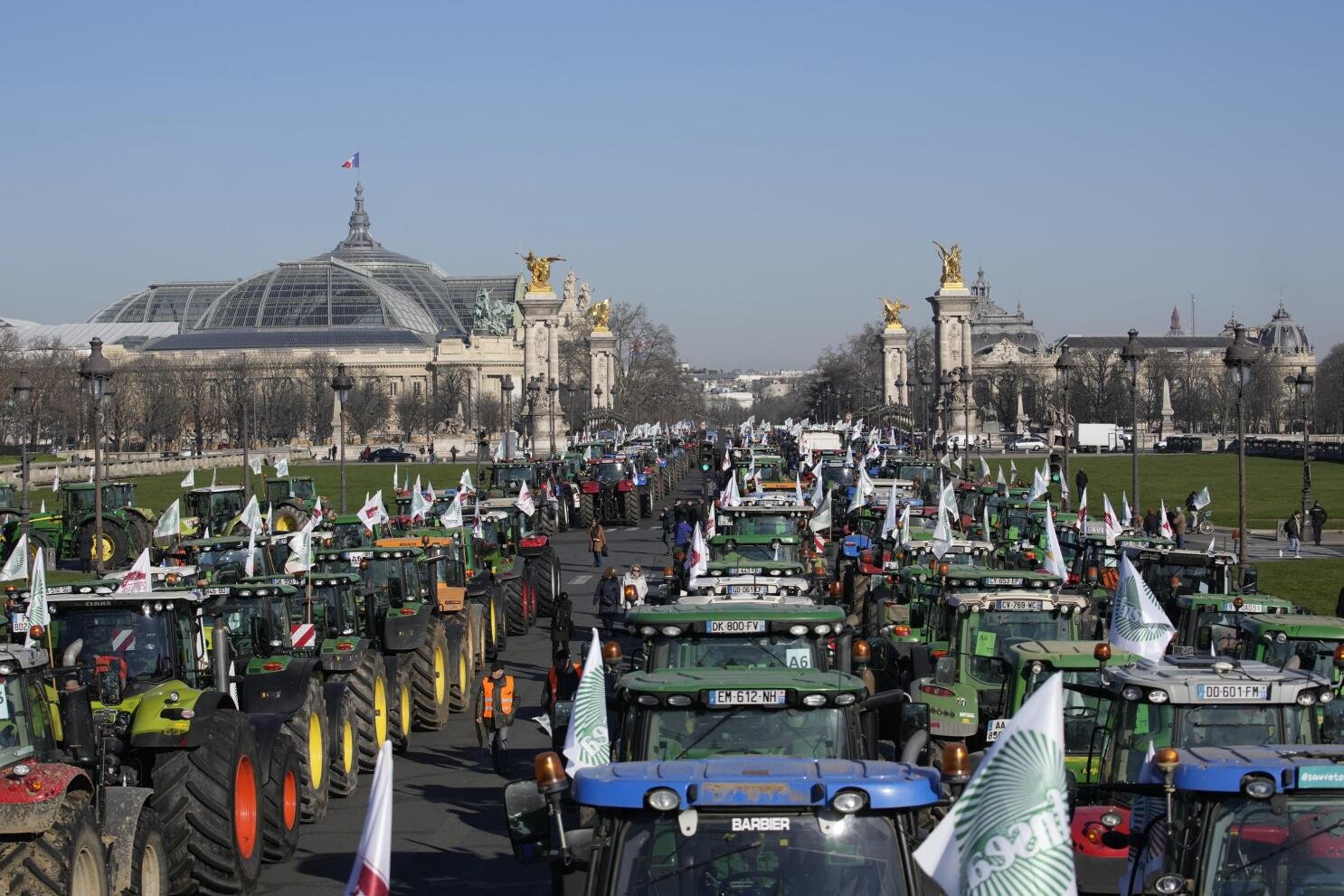
Hundreds of tractors parked in front of the Grand Palais museum in Paris as French farmers marched toward the capital to protest. Photo: AP
The French farmers' protests have entered their second week, after starting in the southwest of the country and spreading into a nationwide crisis. Protesters have dumped imported agricultural products on the streets, burned hay in front of government offices, and in some places even dumped manure in front of the town hall. They have taken thousands of tractors on the roads, blocking France's main highways, such as the A7 and A9, which lead to Spain.
New French Prime Minister Gabriel Attal visited a farm in the southwest where the protests first broke out, trying to calm farmers' anger with very receptive statements.
The 34-year-old leader said the government would scrap plans to reduce state subsidies on diesel fuel used in trucks and farm machinery, cut costly bureaucratic regulations for farmers and negotiate with retailers and distributors to help raise the value of agricultural products.
But those pledges do not seem to be enough. Arnaud Rousseau, head of France’s largest farmers’ union FNSEA, told RTL radio that “there are still many demands that the prime minister has not met” and that Mr Attal’s words have not appeased farmers’ anger.
“Our goal is to put pressure on the government so that we can find a way out of the crisis quickly. The protests will last as long as it takes,” Rousseau declared. And with those threats, convoys of tractors are encircling Paris. They have blocked eight major highways around the capital since Monday. Many farmers have hung flags and banners on their tractors. One tractor bears a sign reading “Angry Farmer,” another reads: “Too many taxes, too many regulations, no income to live on.”
French Interior Minister Gérald Darmanin said 15,000 police and gendarmes were deployed to prevent tractor-trailers from entering Paris and other cities where protests are taking place, and to maintain access to Charles de Gaulle-Roissy airport in the north of the city and Orly airport in the south, as well as the region's main fresh food market at Rungis, the largest in Europe.
Mr Darmanin, who has so far urged security forces not to use force, has warned farmers that a blockade of Rungis, which supplies 60% of Paris' fresh food to some 12 million people, would cross a "red line".
Why?
Prime Minister Attal is currently meeting with representatives of France’s largest farmers’ associations in Paris to find a way to resolve the crisis. This can be seen as a major challenge that has come right in the “honeymoon” days of Mr. Attal, who was appointed Prime Minister of France by President Emmanuel Macron on January 9. A challenge that will not be easy to overcome because the problems that French farmers face are not new.
Farmers in France, the EU’s largest agricultural producer, say they are underpaid and stifled by excessive environmental regulations. Some of their concerns, such as competition from cheaper imports and environmental regulations, are shared by producers in the rest of the EU but not in France.
Farmers say efforts by the government and retailers to curb food inflation have left many producers unable to afford high energy, fertilizer and transport costs. The government’s plan to phase out tax breaks for farmers using diesel fuel, as part of a broader energy transition policy, is also a flashpoint.
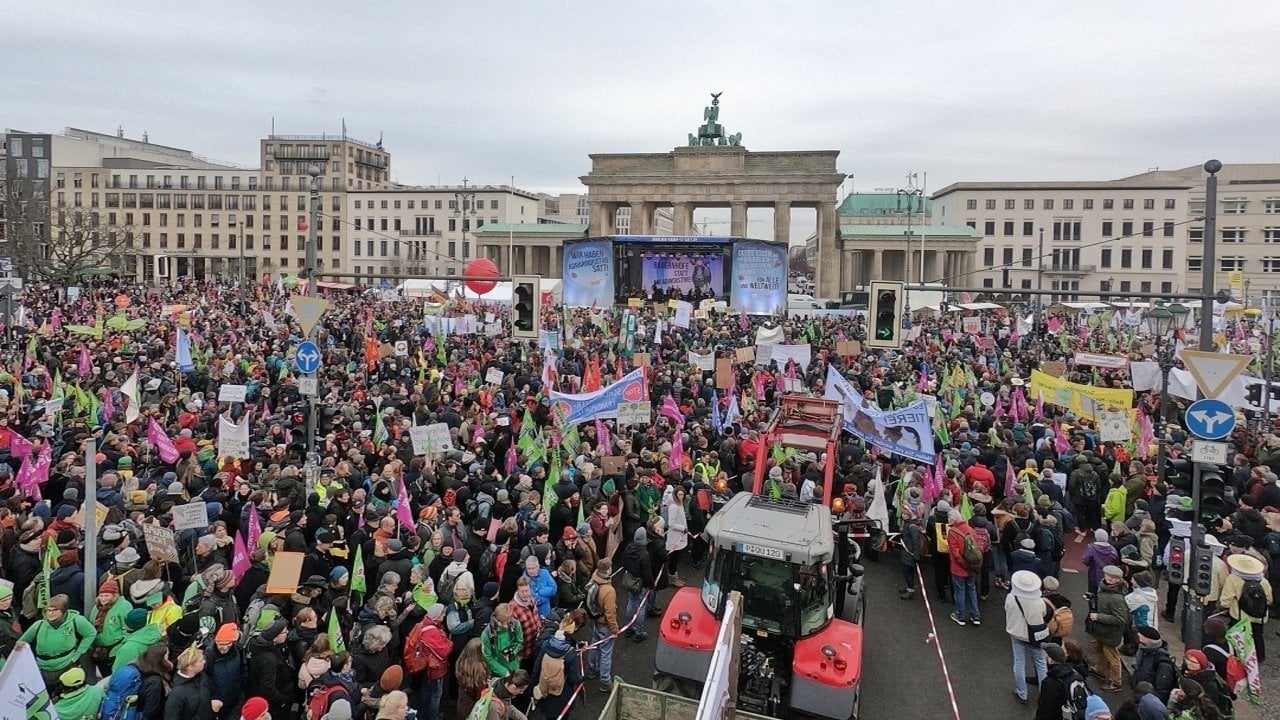
German farmers flock to Berlin to protest fuel subsidy cuts. Photo: AFP
Large imports from Ukraine, which the EU has exempted from quotas and tariffs since the outbreak of the Russia-Ukraine conflict and negotiations for a trade deal between the EU and the South American bloc Mercosur, have sparked discontent among French farmers over unfair competition in sugar, cereals and meat. They object to the imports as putting pressure on French agricultural prices while failing to meet environmental standards imposed on EU farmers.
French farmers also take issue with EU subsidy rules, such as the upcoming requirement to leave 4% of farmland fallow for ecosystem restoration. These green policies are seen as at odds with France’s goal of becoming more self-sufficient in food production and other essential goods.
Controversies over irrigation projects and criticism of animal welfare and pesticides have added to the sense of social marginalization among France’s peasantry. Meanwhile, bureaucratic red tape has added to farmers’ anger. Farmers say they spend an average of 60 hours a month on paperwork, too much at a time when their lives are increasingly difficult.
What happens next?
The French government has promised further measures to help farmers in the coming days. Further support for wine producers affected by falling consumption is being studied, while additional measures for livestock are also expected.
With most agricultural policies and subsidies determined at the EU level, Paris is seeking concessions from its partners, such as trying to build support for abandoning the wasteland requirement, an issue President Emmanuel Macron could push at a summit of EU leaders on Thursday.
On trade, another area addressed at the EU level, Agriculture Minister Marc Fesneau called for measures to prevent imports from Ukraine from destabilizing EU markets, particularly sugar, poultry and eggs. That marked a shift for Paris, which had previously opposed moves by Eastern European countries to restrict the flow of Ukrainian products.
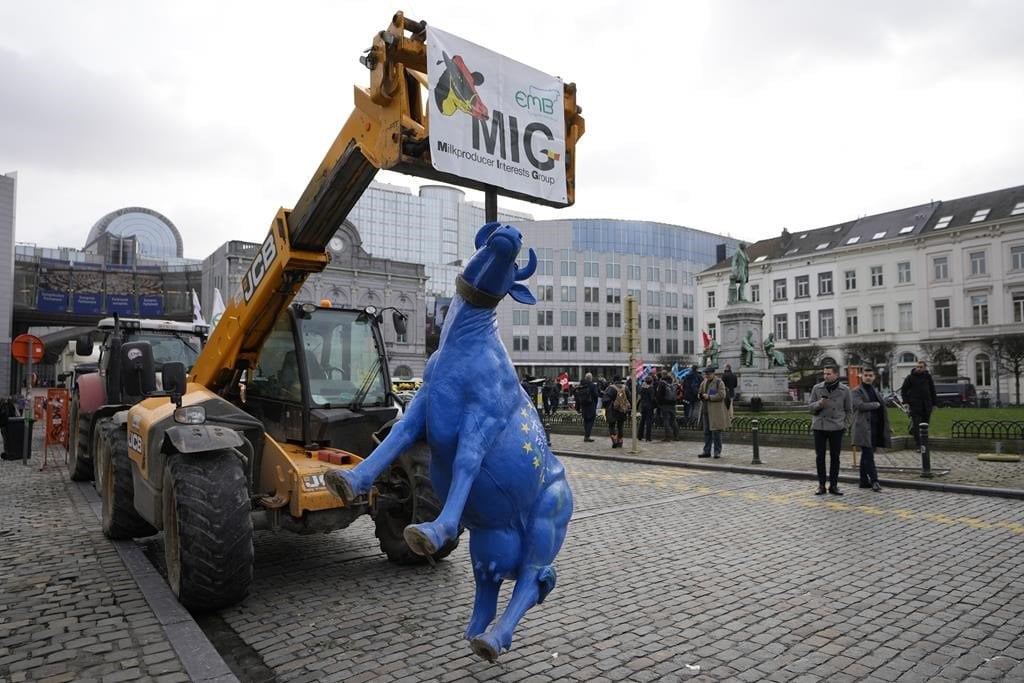
A plastic cow painted in the colors of the EU flag is hung from a tractor during a protest by French and Belgian farmers outside the European Parliament in Brussels, Belgium. Photo: AP
What happens in France is being closely watched by farmers across Europe, because the difficulties in the agricultural sector are not only a problem facing France.
Germany also faced tensions earlier this month, with protests erupting after the government decided to phase out tax breaks on agricultural diesel as part of its effort to balance its budget by 2024. Berlin was brought to a virtual standstill, with trucks and tractors blocking one of its main avenues, much like in Paris. Hundreds of tractors continued to block the port of Hamburg, one of Europe’s busiest, on Tuesday.
Traffic around the Belgian capital was also disrupted by angry farmers on Monday, with about a dozen tractors driving through Brussels’ EU zone, honking their horns. Belgian media reported that farmers stopped about five trucks carrying Spanish vegetables and dumped the produce near the distribution center of Belgian retailer Colruyt near Brussels.
Farmers and truckers in Romania also took action this month, protesting high business costs that have hampered access to the border crossing with Ukraine. There were also protests in Poland, where disgruntled farmers drove tractors through major cities to protest what they called “unfair” competition from neighboring Ukraine.
Polish farmers have denounced the EU’s tariff-free trade with Ukraine, saying it is undermining their livelihoods. They are also protesting against European environmental regulations, which they say are reducing their output and income. In an attempt to calm farmers’ anger, Polish Prime Minister Donald Tusk said talks would be held with the Ukrainian government to ensure that agricultural production and markets are not threatened by “uncontrolled influx of agricultural products from Ukraine.”
That said, Poland, like many other European countries, still has to make great efforts to fulfill its commitments to farmers, because international agreements are not easy to reverse or adjust, while support policies for the agricultural sector are also facing difficulties due to the gloomy economic picture. Therefore, the wave of protests by farmers in European countries still faces the risk of spreading in the coming time.
Quang Anh
Source



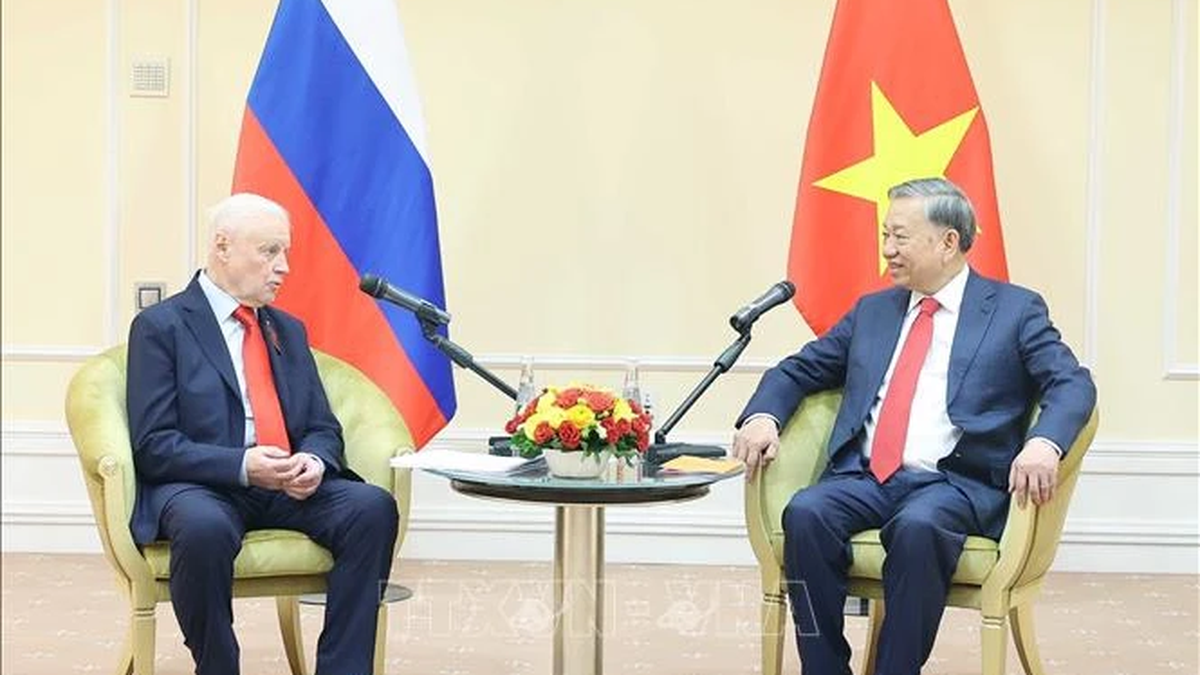
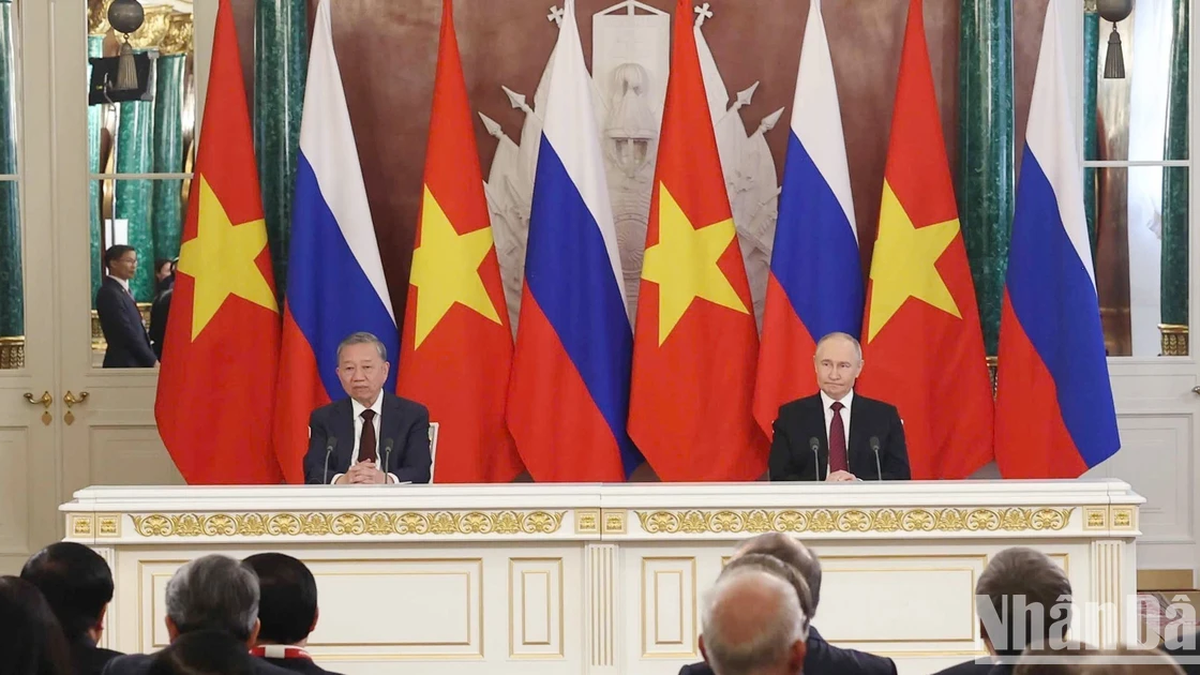

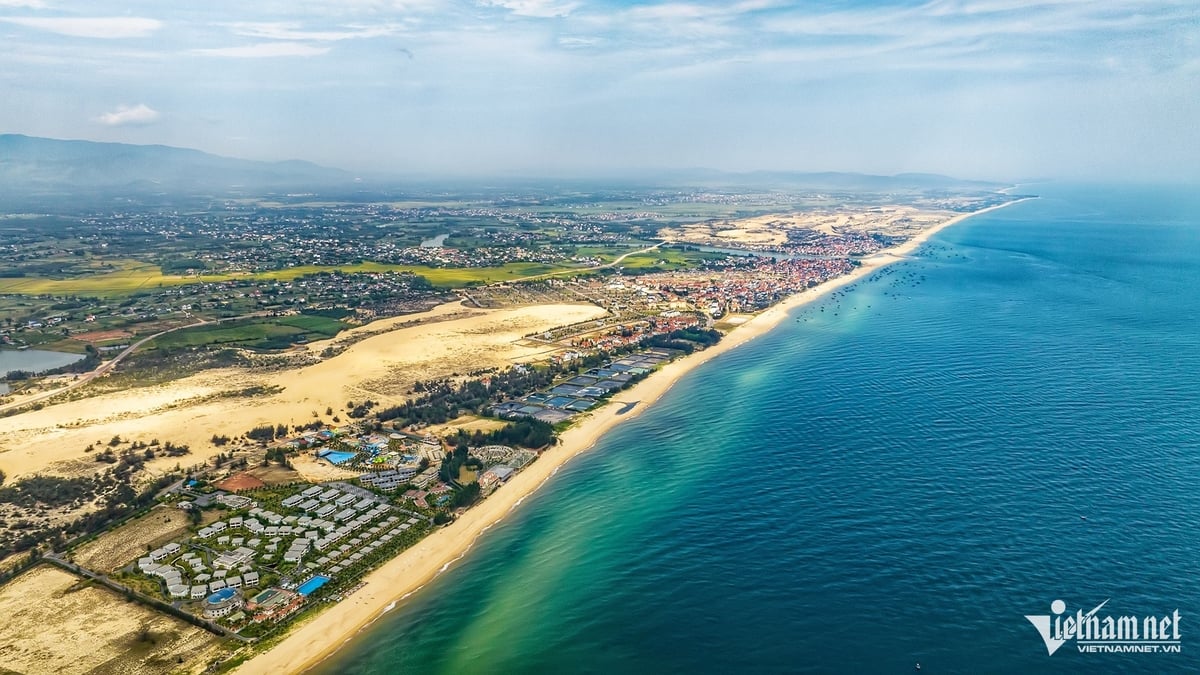
![[Photo] Prime Minister Pham Minh Chinh chairs Government Standing Committee meeting on Gia Binh airport project](https://vphoto.vietnam.vn/thumb/1200x675/vietnam/resource/IMAGE/2025/5/10/6d3bef55258d417b9bca53fbefd4aeee)
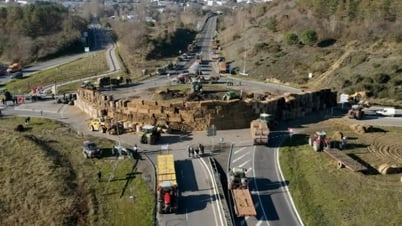
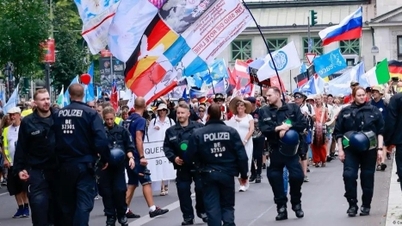

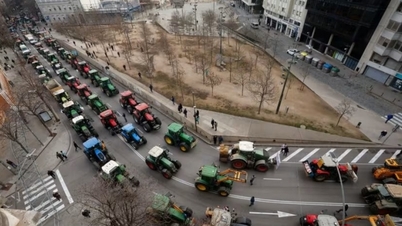


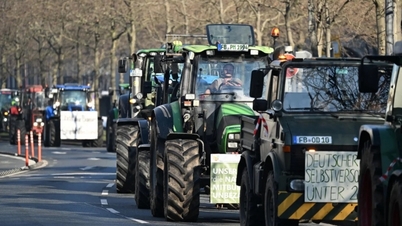




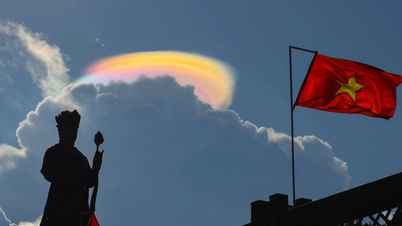











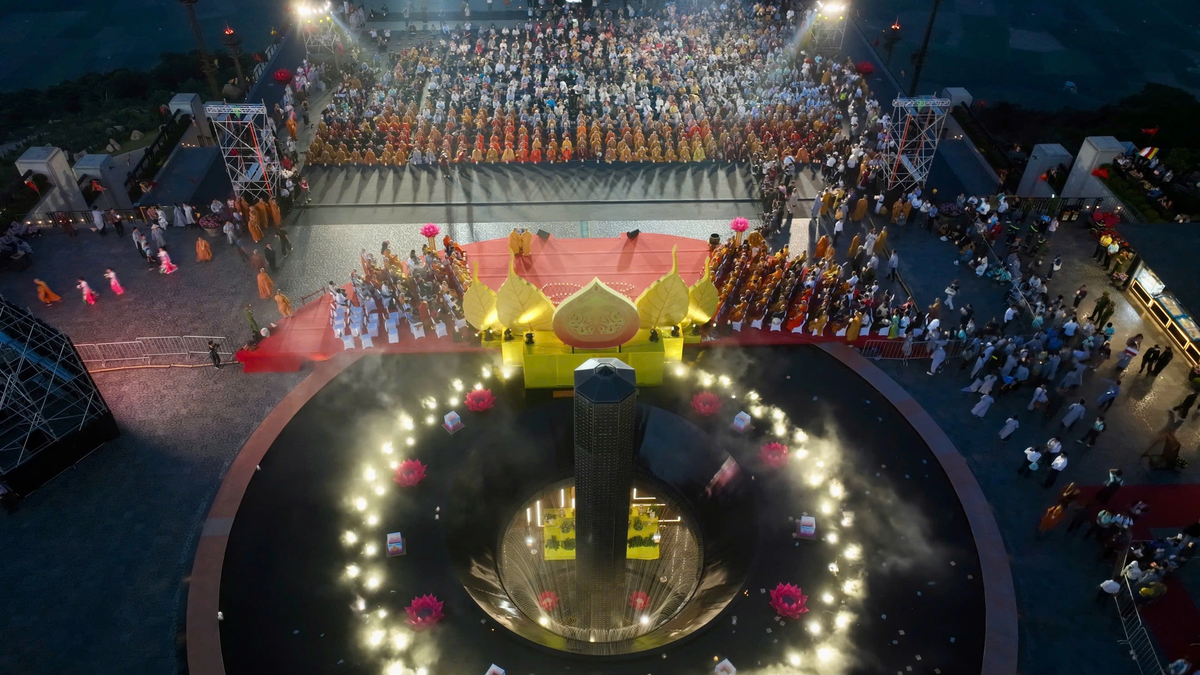



































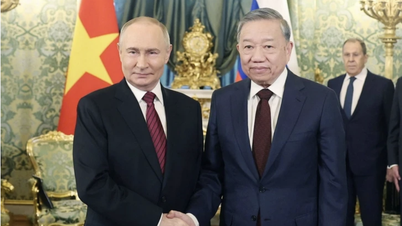
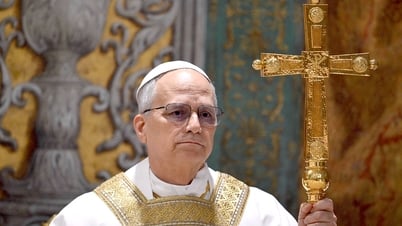
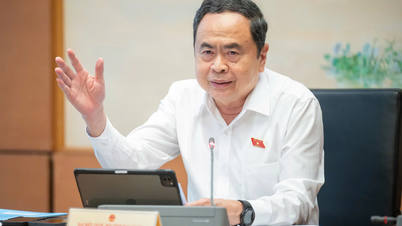





























Comment (0)